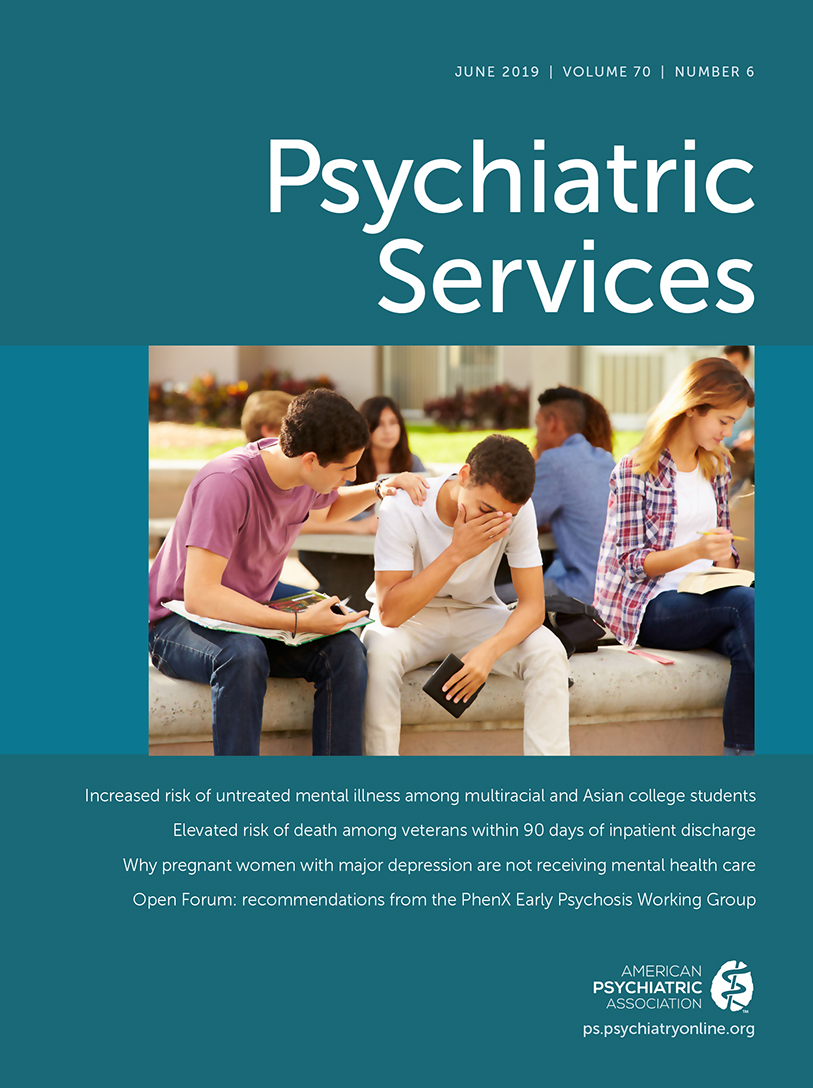Open Dialogue: The Evidence and Further Research
TO THE EDITOR: This is a response to the review of Open Dialogue for the treatment of psychosis, by Freeman and colleagues (1), and to Mueser’s Taking Issue (2) opining that no further research should be funded. Freeman et al. acknowledge widespread interest in—and client, family, and therapist satisfaction with—Open Dialogue. This approach is consistent with the principles of recovery and welcomes peer specialists as an important voice in the network. The Substance Abuse and Mental Health Services Administration recently designated Open Dialogue a “promising practice” for family caregivers.
Freeman et al.’s point that the most thorough research was done by the group in Tornio, Finland, led by Jaakko Seikkula, is well taken. Yet, the authors quickly dismiss Seikkula’s research, failing to credit him with the long-term study of Open Dialogue in the environment where it constituted the region’s mental health system (Western Lapland) and dismissing the value such a natural experiment offers. Furthermore, population data are available, given that Finland has universal government-sponsored services and health data for its citizens, including records on medications, hospitalizations, and disability status.
Seikkula recently published 19-year follow-up data (3)—an astonishing effort. A careful read of his research indicates the same incidence of first-episode psychosis in the area of Finland where Open Dialogue is universal but a sharp decrease in chronicity, with a low rate of disability and antipsychotic use after 5 years. Duration of untreated psychosis of 3 weeks is especially low (versus 74 weeks in the United States). Apparently, the citizenry of Western Lapland know whom to call when they are in crisis. The authors’ various criticisms do not do justice to this work, even questioning its fidelity to Open Dialogue.
The authors mention briefly the ODDESSI (Open Dialogue: Development and Evaluation of a Social Network Intervention for Severe Mental Illness) study, currently under way in the United Kingdom—precisely the kind of research needed. This 5-year randomized controlled trial, a fidelity-guided study, is a huge undertaking with substantial investment by the National Health Service and is similar in scope to the U.S. RAISE study (Recovery After an Initial Schizophrenia Episode) but includes more participants. In ODDESSI, entire catchment areas have been trained in Open Dialogue while comparable catchment areas deliver treatment as usual as the control, with rigorously defined medical and community outcomes.
Somewhat perplexing is the failure to mention that one of the authors of the review is the director of the ODDESSI study (www.nelft.nhs.uk/research-nelft-sponsored-studies). Even more perplexing is Mueser’s call for no further research funding. Why such an extreme response?
The outcomes in Western Lapland should intrigue us all. Should we foreclose examining a practice with a large research project in progress, that families champion as helpful, that improves staff morale, in which recovery is central, in which peers have a place, and that offers hope where generally there is little? Then again, most new treatments meet with such a response until they are embraced as something we knew all along—that families have unique strengths to support and heal those they love, more than any mental health professional can ever do alone.
1 : Open Dialogue: a review of the evidence. Psychiatr Serv 2019; 70:46–59Link, Google Scholar
2 : Is more rigorous research on “Open Dialogue” a priority? Psychiatr Serv 2019; 70:1Link, Google Scholar
3 : The family-oriented Open Dialogue approach in the treatment of first-episode psychosis: nineteen-year outcomes. Psychiatry Res 2018; 270:168–175Crossref, Medline, Google Scholar



